Our alumni say it better!
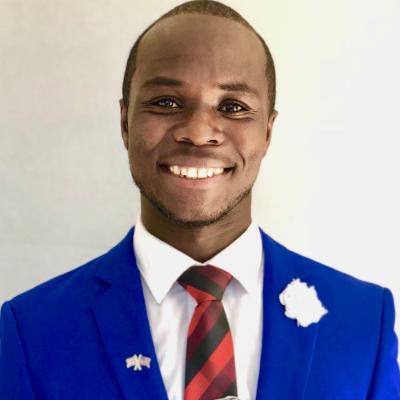 |
My experience at LMU was amazing. I loved LMU and met a lot of incredible people through the program. I currently work at Green-Dot Public Schools and I am passionate about education and making a difference! -Moses Kulee |
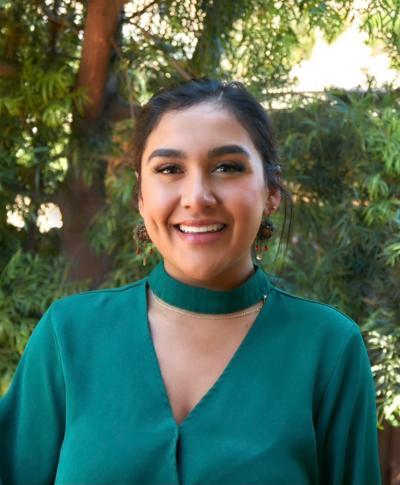 |
I am currently working towards getting my full licensure while being in my doctoral program and I have some advice to share! The biggest one being - your capacity is your own; only you know your bandwidth! Secondly, I would say curate your own experiences. LMU offers a wonderful program but everyone is unique in what they want to do in their careers. Lastly, network! -Michelle Rincon |
-400x497.jpg) |
I was more than a little apprehensive about returning to school after such a long absence, but taking the leap and seeing it through—with the support of amazing professors, advisors, and my family—is definitely one of the accomplishments I am most proud of. LMU afforded me the opportunity to learn from a diverse group of well-respected experts in the field and obtain hands-on experiences to prepare me for the workplace. -Eboni Williams |
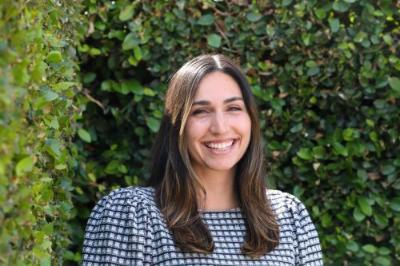 |
I worked on campus as a Graduate Assistant in Transfer Admissions and Enrollment and made many connections that have led me to my current position working with international lawyers at LMU Loyola Law School where I am able to combine my love for counseling and traveling. The most important thing I have learned throughout my time since completing the program is that you have so many options in this field of work. Find what you enjoy most about counseling/mental health and then search for a role that compliments your passion. -Ryanne Martucci |
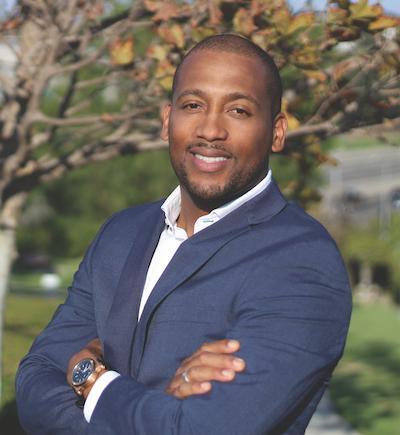 |
The personal development that I achieved through LMU's Counseling Program has provided me with the skills required to confidently advocate for social justice in schools. -Kelvin Piazza |
-
Ryanne Martucci '20 MA, School of Education, Master of Arts in School Counseling 
What have you done that you are proud of?
I am most proud of the fact that I took a leap to try out a new position within the counseling space. I had always believed that once I completed the program, I would either work at a school as a counselor or pursue my LPCC and work in private practice. I never thought I would be able to combine my love for counseling and working with students in this capacity. Although it was nerve-racking at first, I am proud I made the change. Although I love working with high school students and hope to return to a similar role in the future, this new role has allowed me to grow professionally and personally while working with a unique group of students.
How has your work made an impact on your community, school, agency, classroom, clients or students?
Prior to my current role, I worked as a College and Career Counselor at a local high school. I quickly realized the inequity in access to college/career education. Many of our students have false information about what life beyond high school looks like. I make sure to provide opportunities and options for all students, those that may not be college bound, those that want to enter the workforce, those who are interested in the military. Maybe they were interested in attending college, but their path included community college. Being able to provide opportunities and options to our students is so important. There is no "one size fits all" approach to counseling. In my current role, I have the opportunity to work with individuals from all over the world, providing a path to education that will provide them with additional career and professional development experiences that can not only change the trajectory of their lives, but those they intend to serve in the future.What evidence can you share that demonstrates the impact of your work?
Most of the evidence of my work comes from the individuals themselves. Whether it is a student I have worked with that shares stories of their freshman college experience, or a former student of mine working at a local restaurant, proud of their accomplishments. I see my students all around town. Although I may not always remember their names due to increasingly large class sizes, they always remember mine and the special bond we shared throughout the time we worked together. The most important thing to always remember, is we are all unique individuals, with different skills, values, and accomplishments. Cherish and appreciate the uniqueness in the individuals you work with..
-
Moses Kulee '18 MA, School of Education, Master of Arts in School Counseling 
What have you done that you are proud of?
I am proud of my educational journey and how far I have come in my educational endeavors. Throughout the past five and half years that I have worked as a counselor, I have worked diligently to help shape the lives and futures of the disenfranchised students’ population and community I served. Working as a counselor in one of the most remote communities in Los Angeles has opened my eyes to see the realities that exist between the rich and the poor, the advantaged and disadvantaged populations. I am proud that I have used my social justice lens education from LMU to live a meaningful life of service and leadership. Although I have received many awards such as “Rookie of the Year,” the “Young Jedi” nomination for the Counselor of the Year from LACOE (Los Angeles County of Education), amongst others, I am proud to have used my servant leadership to make a difference in the lives of my students and the community in which I work. I have also taken on many leadership roles at a school site level as well as at a district level. I have served as the director of the Animo Pat Brown Mentorship Ambassador Program, African American Students Achievement Lead, Counselors Professional Development Lead for Green Dot Public Schools, as well as Coordination of Services Team (COST) Lead. Needless to say, despite my leadership involvement in many different capacities, what I am most proud of is my desire and willingness to fill in the gap where needed and live a fulfilling life of servitude.
How has your work made an impact on your community, school, agency, classroom, clients or students?
I believe the work I do every day at my school site and community is making an impact because I see my students transform before my eyes, and see their insurmountable dreams come to reality. For example, many of my students who are the first in their families to either graduate from high school or attend college, come to my office feeling confused and overwhelmed with decisions to make about the future. After asking questions and engaging in a dialogue, they leave my office with a smile on their faces, feeling optimistic, and dare to dream. Furthermore, when I speak with parents and community members, they do not stop praising and applauding the work that we do at the school to prepare their children for life, college, and leadership. In a similar manner, I have also had graduates write me letters or come back to thank me for guiding them in their educational endeavors, and that they too are pursuing education because of the impact I had on their life. In the words of one of my assistant principals, Sadoc Caraballo, when he was interviewed by the district Home Office, he said, ”Mr. Kulee is a dedicated counselor to all the APB students in all areas. He not only cares that students are successful academically, but also socially and emotionally. It is wonderful to see how he has created beautiful relationships with the students and a culture of trust with everyone. In his practice it is remarkable to see his passion for social justice, equity, and transformative education. In one of my students' appreciation cards to me on how my work has impacted her, she wrote “I’ve become more confident in my communication, being more confident about my choices because of your positive, energetic, happy personality. “I believe my time at LMU has prepared me to do the social justice related work that I do every day as I work with students to make a meaningful difference in their communities and future endeavors.
What evidence can you share that demonstrates the impact of your work?
The evidence that demonstrates the impact of my work is in the letters I receive from students every year as a way of appreciation for our time together. I have also received numerous awards from the Parent Institute for Quality Education (PIQE) program for helping and supporting their children both mentally and academically to secure academic excellence in their educational endeavors. Before one of my students graduated, she wrote a card to me and said the following ”...I’m writing to you because I wanted to express my gratitude with you helping my communication skills…in your office you always create a comfortable environment where people open up to you on the daily. I was a shy kid back before the pandemic but after talking to you a couple of times, I feel like I am starting to become more open and less shy…” This is why I do the work I do every day, seeing my students being transformed and striving for new heights, and challenging the status quo.
-
Tom Johnstone '84 Ed.D., School of Education, Masters Program in Counseling 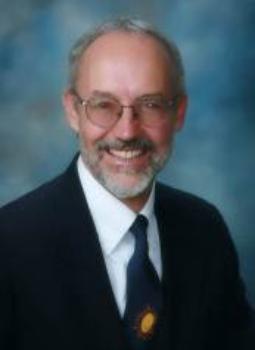
What are you proud of?
I am proud of my entire body of work over a 35 year period in education. My education has strong roots in the Jesuit Tradition of Social Justice. I completed my Masters Degree in Counseling at Loyola Marymount University in 1984. Although I was only a counselor "officially" for four years at Lennox Middle School in Lennox, California, I have been a counselor every day of my life since completing the LMU program. My counseling background and experience have been at the heart of everything that I have done for the past 30 years. Education is a "people" business and is all about relationships. After four years as a counselor, I moved into administration as an assistant principal, principal, Director of Curriculum, Assistant Superintendent of Human Resources and Superintendent. All of these positions are highly involved with people, problem solving and the defusing of potential volatile situations. My LMU Counseling program is the "gift that keeps on giving," as I have been able to use it every day!
What motivates you?
My favorite quote is from the Unreasonable Man, by George Bernard Shaw; it goes like this:
"The Reasonable Man adapts himself to the circumstances around him. The Unreasonable Man adapts the circumstances around him to himself. All progress depends on the Unreasonable Man."
I strive to be as diplomatically "Unreasonable" as I possibly can, every day of my life. I like to set seemingly impossible goals, and then go out and achieve them. The Wiseburn Community, south of LAX, has dreamed of having its own high school and becoming a unified school district (going from a K-8 to a K-12), for the past 30 years. When I interviewed in 2008 to become the Wiseburn superintendent, I told the Board of Trustees that I had two goals for the district: first to achieve unification (become a K-12 district), secondly to build and create the finest high school in the South Bay. After six full years of hard work and determination, the passage of two bills that were both signed by the Governor, and collaboration with five school districts, we achieved unification in November 2013 with almost 93% of the vote. The Wiseburn Community passed a school construction bond to build Wiseburn High School and we will be breaking ground in the spring of 2015 to realize our long-term dream. Never doubt the power of a small group of determined individuals to change the world!
How has your work made an impact on your community?
In 2007 the students at Dana Middle School in Wiseburn were not performing at their full potential. The Academic Performance Index for Dana in 2007 was 765. A new administration took the helm at Dana for the 2008-09 school year. Working closely with the District and the Dana Middle School staff, the administration launched a "Student Accountability for Learning" initiative that included Student Lead Conferences, Interdisciplinary Teaching Teams, Targeted Learning in the Content Areas, and extensive use of collaborative partners from LMU (CMAST) and the aerospace industry (Northrop Grumman, Boeing, Raytheon and Aerospace Corporation). The strong focus was on relationships with students, student engagement, and a reinventing the school culture at Dana Middle School to create an ethos where every student is well-known and valued. The progression has been astounding! Over a five-year period from 2007 to 2012, the Dana Academic Performance Index grew 120 points from 765 to 885.
Dana renewed as a California Distinguished School in 2013 and in 2014 has been recertified as a National Forum School to Watch. In 2013, Dana Principal Aileen Harbeck was recognized as ACSA's Middle School Principal of the Year for the State of California. Dana is now the flag ship of our district. This was all accomplished through high expectations, leadership and a focus on the students.
-
Rachel Andrews '07 LPCC, MA, PPSC, School Counseling 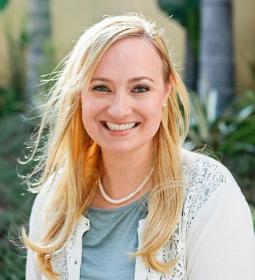
What have you done that you are proud of?
As a middle school counselor, there are countless things I am proud of: from making a connection with a student who seemed "unreachable;" to convincing a parent to try a new strategy in the home; to helping a teacher feel empowered; but the best work I have done is in the area of transparency. I am proud that my counseling team meets with administrators regularly, speaks at PTSA meetings, sends out a weekly counseling newsletter, and serves on district- and site-level committees. I am excited about the work I do teaching mindfulness, preventing/addressing bullying and violence, helping kids get academically on-track, and connecting them to their future through college-and career lessons. The reason I can do all these things is because our students, parents, administrators, district, and community members know what we do and why it's important. Without transparency, we lose effectiveness. When people know what we do, and our true role, they want us to do more of it!
How has your work made an impact on your community, school, agency, classroom, clients or students?
I have been a counselor long enough now to have my groceries at Trader Joe's rung up by one of my former students. During that process, he thanked me for all of the time I spent with him to help him get on track. At the end of the school year when I am starting to feel run-down and exhausted, I get a flood of heart-felt "thank you" notes and gifts to let me know that what I do is deeply appreciated. I have a box where I keep them, and I literally have hundreds and hundreds of notes that serve as a reminder that I am blessed with the ability to change lives. In addition to the anecdotal impact, our counseling department closely tracks our data for our classroom guidance, college/career lessons, organizational boot camp, at-risk interventions, group counseling, and other programs we run to address student need. We have the charts and graphs to show that what we do makes a profound impact!
What evidence can you share that demonstrates this impact?
We collect data on everything, but one example is from our 6th grade Career Interest Inventory lessons. Below is our post-test response data referencing the following question: I am able to think of at least three jobs that would be a good match with my personality and likes/dislikes. We are thrilled that after the lesson, all of our students surveyed could think of at least one career match!
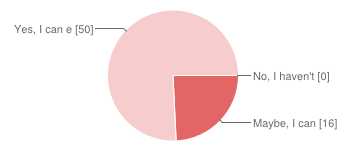
-
Trisha Lee '13 MA, PCCI, School of Education, Master of Arts in Counseling, PPS Credential -255x290.jpg)
What have you done that you are proud of?
First and foremost, deciding to continue my education and earn my Master's Degree is a huge accomplishment. Pursuing a career that I have become so passionate about has been one of the most rewarding experiences. Every day at work is something new, and this is one of the many reasons I decided to work in schools.
How has your work made an impact on your community, school, agency, classroom, clients or students?
I have been at my school for four years, my first two years I worked as a one-on-one support for students with disabilities and this continued to foster my growth as an educator and really understanding how all students work and learn. For the past two years, I have been the school counselor. Last year I worked as a K-5, counselor, teaching classroom guidance lessons about social skills, problem solving strategies, anger management, friendship lessons, and Bully awareness. I also worked individually with students to help support their social and emotional development through role plays, games, and collaboration with all stakeholders. These relationship and classroom lessons have made an impact by helping the teachers, students, and staff gain more insight as to how to help students problem-solve and work together.
What evidence can you share that demonstrates this impact?
This year, I am the counselor for K-7 as my school is growing each year, and I continue to do classroom guidance lessons, and individual social and emotional support for all students, but in addition to this, I now co-teach with our middle school teachers during the student's advisory class (aka homeroom) incorporating the ASCA Standards into the lessons to help these students transition to middle school. I visit each advisory class once a week to focus on ASCA standards in all three domains depending on the time of the school year (Quarter 1= personal/social awareness; Quarter 2= academic awareness: GPA's, grades, improving grades; Quarter 3 and Quarter 4= College and Career awareness).
Helping this age group and giving them a safe space and exposure to talk about things that matter to them, but may not pertain to math, English, and/or other core classes. This time has also helped our students to learn about others and themselves as they continue in their educational experience. This has been a huge success in reaching all students on a more personal level. Being able to be a partner at my school site and make a difference at the student level, with my colleagues, with the parents, and our community has been an added bonus to what makes my job so special. We have a direct collaboration with LMU Family of Schools and work with student teachers in the field as a research to practice site. I am also able to partner with the general education, special education, and student teachers to help create a more successful academic/social-emotional plan for our students. I am so grateful that I am able to take what I learned from LMU and put it into practice every day when I go to work.
-
Mireya Graciano '13 MA, School of Education, Master of Arts in Counseling, PPS Credential -255x292.jpg)
What have you done that you are proud of?
I am most proud of establishing a counseling department from the ground up. When I got hired at St. Pius X – St. Matthias Academy there was no counseling department nor were there counselors. Immediately, I began meeting with students and conducting a needs assessment of the school. Our next step was to implement academic programs that supported students and promoted a college and career-going culture.
How has your work made an impact on your community, school, agency, classroom, clients or students?
In the counseling field it can be a challenge to get support from teachers and staff. However, the work we have been doing at St. Pius – X St. Matthias Academy is seen as valuable and appreciated by its school community, but most especially by all of our teachers.
What evidence can you share that demonstrates this impact?
When I speak to students, they share with me that because of the events and programs we have, they have discovered something integral to their life. For example, two students told me they discovered what their college major and career path was as a result of attending our annual Career Day. Another time while counseling seniors individually about college, I met with a particular student and I found a college in New York that was a great fit and match for what she wanted. She applied and was not only accepted, she was offered one of the highest scholarships.
-
Ken Rosen '12 MA, Masters of Arts in School Counseling, PPS Credential 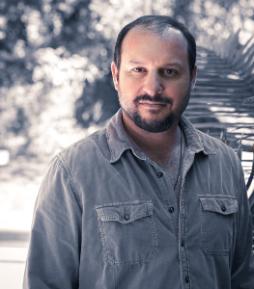
What have you done that your are proud of?
I am proud of having gone back to school, as a single dad at 38 years-old. It was a real challenge to balance school, work and my children. I am proud to have received my Masters in School Counseling with the PPS Credential.
How has your work made an impact on your community, school, agency, classroom, clients or students?
My approach to working with students is to treat them like young adults who have something to offer, not unknowing students who just need me to help them get through their issues. I pride myself on the relationships that I have with my students. At Crossroads School in Santa Monica I work as an Advisor for the Class of 2015. Our program is built so that an Advisor works part time counseling students, and part time teaching classes. I stay with the same group of students as Advisor and when that group graduates, I begin again with the next ninth grade class. After 4 years, I become very close to the students and their families. I believe I've impacted the community by creating close relationships with my students and their families.
What evidence can you share that demonstrates this impact?
The best evidence I have to demonstrate my impact on the school community is that my Advisees are all performing well. I had several students who began the year having experienced serious traumas, including the death of a close family matter and psychology issues. I worked hard to help these students maintain their academics while navigating their situations. There were some that had to take time off from school. I worked closely with the school administration, faculty and the student's families to allow them to stay on track to graduate. I facilitated their making up missing work and coordinated with our school psychologist in efforts to them maintain their emotional and social health. The courses I took at LMU have been impactful and I am able to directly apply what I learned. Thanks LMU!
-
Louisa Lombard '12 MA, PPS, PCCI, Master of Arts in Counseling, PPS Credential -255x300.jpg)
What have you done that you are proud of?
A number of the clients I serve have experienced numerous challenges early in their lives: community violence, gang involvement, poverty, discrimination, incarceration, failing grades, limited support, early substance abuse, and other challenges. When clients start making positive changes such as decreasing/stopping substance use, identifying what they like about themselves, improving school grades and attendance, planning for the future, asking for help, and/or improving positive coping skills, it makes me feel proud. Graduate school is also a time that I am proud of. I worked very hard and was fortunate to have chosen LMU because the quality of the education provided gave me a solid foundation to support my daily work. The professors were knowledgeable, supportive, passionate and engaging.
How has your work made an impact on your community, school, agency, classroom, clients or students?
I work for a community agency that provides short and long-term counseling to young people who either use or are at-risk of using substances. My work directly impacts the community because I provide individual and group counseling at several local high schools, offer family counseling to increase positive communication at home, partner with school staff to provide information on substance use issues and offer referrals, collaborate with other non-profits in the community, give presentations at a local college regarding substance use issues, work with the probation department to support youth in stopping their substance use and getting off probation, screen youth using substances to help them determine the appropriate level of care needed, provide referrals for inpatient treatment and offer information from local community agencies as needed. I help my clients to realize their own strength and value, and support them in being better able to see a future that has meaning for them.
What evidence can you share that demonstrates this impact?
We collect data and closely follow client treatment plans which provide us with data as to progress made in our program. Most of my clients make measurable progress while in treatment, some very significant. Sometimes I can observe progress from session to session in the form of a client stopping or dramatically decreasing their substance use or other risky behaviors, graduating from high school, applying for college, getting off probation after being in the system for years, getting their first job, improving their grades and attendance at school, improving positive communication skills, finally agreeing to see a psychiatrist for a severe mental health condition, or simply starting to like themselves and feeling happier.
-
Erica Espejo '11 MA, School of Education, Master of Arts in Counseling 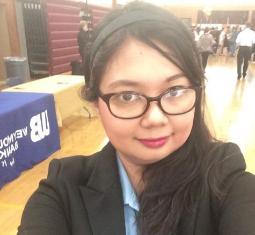
What have you done that you are proud of?
I'm very proud of the fact that I founded the College Week Live Professional Development series within my first year working for the college readiness company. Known for their live admissions Q&A events, CollegeWeekLive now provides services for school counselors, including online webinars that provide contact hours towards professional development. The topics revolve around college readiness and admissions. I am fortunate to work with guest presenters from the U.S. Department of Education, NCAA, ACT, and more.
Additionally, my LMU background has encouraged me to search for topics and resources that would help underrepresented populations. Such webinar topics have included best practices for "dreamer" students, students with special needs, LGBTQ students, and more. I search for topics relevant to what's going on in the current social and political climate and social justice topics that affect us all. I'm very proud that this free service for school counselors has been going on for almost two years. Not many counselors can afford the time and money to travel to professional development conferences or make it to all the sessions. This service we provide allows counselors to receive training and stay up to date on current topics in college readiness and preparedness.
How has your work made an impact on your community, school, agency, classroom, clients or students?
In addition to providing professional development resources, CollegeWeekLive also allows counselors and educators to request colleges to do a live Q&A chat with students via the High School Connect (HSC) program. When I first started with CollegeWeekLive, I was assigned to work with West Coast territories. Now, I work with the entire country and some international schools. My counseling background made it easy to talk to counselors and educators about understanding the value of our free college readiness resources. Essentially, counselors can have students chat online with admissions reps across the country.
Schools in rural areas, like the Inland Empire, can chat online with colleges on the East Coast, or a school in Orange County can have 8th and 9th graders begin to build relationships with UC's and CSU's so they can learn what they can do now to become the best qualified students. I have worked with a dozen California schools as well as a handful of high schools across the country to get them on board with our online chat services. We even encourage graduate students in fieldwork programs to utilize our resources! In a way, I feel that HSC can bring students and colleges closer beyond the admissions rep presentation. The beauty of HSC is that it's flexible; we encourage all grade levels to try it out! Here's a demo link, narrated and edited by me!
What evidence can you share that demonstrates this impact?
As someone who manages a nationwide and international territory, I have had 46 successful online chats in the Spring 2015 semester alone. More and more counselors are continuing to express their interest in using High School Connect (HSC) in Fall 2015. In regards to professional development, I had over 800+ in attendance for our NCAA presentation. The presentation covered the new NCAA Eligibility Center; not many college guidance counselors are aware of resources for scholar athletes. This presentation was CollegeWeekLive's single largest attended live event. Additionally, because of popular topics in the professional development series, I brought in over 1,400 new counselor registrants to our database, increasing our reach and building our relevancy. I have also had 80+ middle school students from Central California have online chats with UC Santa Barbara showing that our resources can be used for middle school audiences.
-
Laurel Goycoolea '15 MA, School of Education, Master of Arts in Counseling -255x280.jpg)
What have you done that you are proud of?
Throughout my time in the guidance and counseling program at LMU, I was in a (nearly) unique situation. I was one of the first two members of the LMU Partners in Los Angeles Catholic Education (PLACE) Corps program to complete a master's degree in guidance and counseling. Most other PLACErs complete the single or multiple subject education MA. Because I was a member of PLACE Corps, I was teaching full time while completing the master's program.
How has your work made an impact on your community, school, agency, classroom, clients or students?
At the conclusion of my master's program, I was able to transition from my full-time teaching position to a full-time academic counseling position. I was thrilled at the chance to put my degree into action immediately for the 2015-2016 school year. I had spent some time working in the counseling office at my school during the 2014-2015 school year when we had a counseling staff of three part-time counselors and one full-time counselor for 500 students. Now, we have two full-time counselors and have streamlined many of our processes.
What evidence can you share that demonstrates this impact?
In our attempts to make our processes more efficient, we have utilized a fully digital, online note-taking and tracking system. We have also completed a full academic audit of our entire student body, an audit that had not been completed in recent years because administrative positions went through some dramatic changes. As a result of some of these updates and adjustments, we are more efficiently helping our student body succeed. I am proud to step into this role during a time of change for our school. We are going through a re-certification process and we have a new principal and a new assistant principal of curriculum – it is an exciting time to be a member of the student support team.
-
Adam McManamy '14 MA, School of Education, Master of Arts in Guidance and Counseling -255x362.jpg)
What have you done that you are proud of?
Currently, I am very grateful to be counseling in an award-winning and nationally recognized veteran services program. Working on the grounds of the flagship Veterans Administrations Healthcare System in the country, The Salvation Army Haven Veteran Employment Services, I have been able to use what I learned at LMU to help hundreds of veterans as they transition to civilian life.
How has your work made an impact on your community, school, agency, classroom, clients or students?
From the success I have encountered in my counseling of all types of veterans, I have had the privilege of being invited to several groups or presentations for an even larger veteran impact. Today, I sit on the LA Veteran Employment Committee and work with the LA Veterans Collaborative Career Development Group at USC's Office of Social Work. I was also recently asked by Mayor Garcetti's Office of Veteran Affairs to moderate a panel at his 10k Strong Veteran Summit.
What evidence can you share that demonstrates this impact?
Since my site-based experience at The Haven, which became full-time employment upon my graduation, I have counseled a wide range of veterans who are now in various careers across the country. My counseling has been effective in Los Angeles with veterans returning home from active duty in Iraq and Afghanistan, veterans battling chronic homelessness, dual-diagnosed veterans, or veterans attempting to receive degrees. My success always starts with the pursuit of social justice, a foundation ingrained in me by the ethical standards of LMU.
-
Brian Johnson '75 MA, School of Education, Master of Arts in Counseling -255x364.jpg)
What are you proud of?
I am proud of my 37 years in education. I graduated from Loyola University with a degree in Psychology in 1975 and earned my elementary teaching credential soon afterwards. While teaching grades 3 to 6 in LAUSD and the Lennox School District, I returned to my Psychology roots and completed my M.A. in Counseling and my PPS credential at LMU in 1980. I served as a 7-8 grade counselor at Felton Junior High School in Lennox for four years and then moved on to the roles of elementary Assistant Principal, elementary Principal, middle school Principal, and Assistant Superintendent of Administrative Services, all in the Lennox School District. Working in Lennox for 35 years allowed me to put into action the social justice foundation that I learned at LMU. Lennox is an extremely low socio-economic community, with a 93% "port of entry" immigrant population. My foundation as a counselor was put to use throughout my administrative career since school leadership requires strong communication and connections, especially with populations who are struggling with language, economic issues, and trust. Being part of the Lennox community was an avocation for those of us, many of whom were LMU grads, lucky enough to work there.
What motivates you?
Paying it forward. I have been very fortunate. My parents, farm kids from the depression, knew that education was the key to a better life. Despite their incomplete formal education, they instilled that value in my siblings and me as they worked to put us all through Catholic schools. I was fortunate to receive a scholarship to Loyola University and it changed my life. The quality people whom I met at LMU, both staff and students, continue to be my friends and "family" to this day. Having grown up in a migrant community in Oxnard, being lucky enough to be hired in Lennox felt like going home. The relationship that LMU built with Lennox over the years enhanced my devotion to both the Lennox community and LMU's mission. That relationship has led to many Lennox students coming full circle, attending LMU and returning to teach and lead the community of Lennox.
How has your work made an impact on your community?
Lennox is an unincorporated community in LA County, without any City Council and is, basically, devoid of a political power base, thus leading to a dearth of community services. However, the Lennox School District has been a safe haven for students and their families for almost 40 years. Understanding that communication was THE most important issue, new leadership in 1976 began to hire young, bilingual staff who were able to build a trusting relationship with the immigrant community. Soon the district was being recognized nationally for its bilingual program. The schools, despite the socio-economic struggles of the community, were safe and modern facilities, and the district soon became a model that other struggling urban districts sought to emulate. I was one of hundreds of staff who helped, on a daily basis, to build that reputation. But, because the Lennox "family" was all moving in the same direction, we were able put the community of Lennox, and the Lennox School District, on the map!
-
Danielle Kirschbaum '12 MA, School of Education, Master of Arts in Counseling 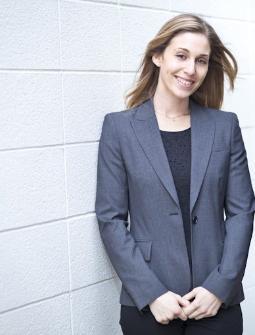
What have you done that you are proud of?
I am proud of how I have used my education at LMU to start my own business, something I never imagined being able to do in the past. During my time at LMU, I became interested in the academic enrichment field as a way to support students outside of school so that they can feel more confident and better equipped in class. I sought a part-time job as an assistant for a new tutoring company to learn more about the industry. During the interview, the owner and me realized how much our goals and educational philosophy aligned. Soon after, we decided to become partners in a more comprehensive program that would include tutoring, test prep, and college admissions counseling.
I graduated LMU far more confident, outgoing, and eager than I had ever been before. I felt ready to pursue my dreams in unique and innovative ways. I am most proud when I receive feedback from families that their child feels more confident and, as a result, is seeing improvement across the board. This is the ultimate reward.
How has your work made an impact on your community, school, agency, classroom, clients or students?
The goal of our program is to help students "get more than a score" not only by teaching and mentoring them on the content but also by helping them see the bigger picture of their studies and prep work.
We launched Vault Prep with the goal of helping students become confident, engaged, and independent learners. Our philosophy is to help students explore the material, engage in a meaningful way, and empower them to raise their own bar. Most importantly, we developed our company to be a social benefit business. Using the relationships that I built while at LMU as well as more recent relationships, we provide FREE academic enrichment to students that could not otherwise afford our services.
What evidence can you share that demonstrates this impact?
For every ten hours of service that we provide to a family that can afford our services, we are able to offer a free hour of tutoring to an underserved family. As a result, we have been able to offer free weekly drop-in tutoring at local public middle and high schools, a weekly math clinic for a low SES (socioeconomic status) group at a middle school, weekly math/science tutoring a local non-profit, and several free one-on-one tutoring programs and college counseling mentorships.
The primary feedback that we receive is that our students feel confident and have begun to enjoy the learning process. The best news we can get is when a family no longer needs us because the student has the tools to tackle challenges on their own. It sounds silly that I am happy when someone stops using us, but it is the truth. We have helped over 50 students get into college through one-on-one mentoring and helped several hundred students exceed their test prep goals.
We find that students enjoy coming to our office. They feel respected, comfortable, and safe. They feel encouraged and smart. I love watching our students mature into young adults.
-
Eboni Williams '14 MA, School of Education, Master of Arts in Counseling -1-255x317.jpg)
What have you done that you are proud of?
I began the Master of Arts in Counseling program at LMU after almost 18 years of being a full-time mom to five children. Once my youngest entered kindergarten, I knew I wanted to re-enter the workforce. Although counseling seemed like a complete shift from my undergraduate studies in pre-law, I found that my ability to listen compassionately, understand, and help problem solve transferred quite well into becoming a helping professional. I was more than a little apprehensive about returning to school after such a long absence, but taking the leap and seeing it through—with the support of amazing professors, advisors, and my family—is definitely one of the accomplishments I am most proud of. LMU afforded me the opportunity to learn from a diverse group of well-respected experts in the field and obtain hands-on experiences to prepare me for the workplace.
How has your work made an impact on your community, school, agency, classroom, clients or students?
After earning my MA and registering as a Professional Clinical Counselor Intern with the Board of Behavioral Sciences, I began working as a Therapist at one of Southern California’s largest community mental health organizations. In our division, we treat adolescents who have been identified as being either at risk, needing treatment, or recovering from substance use disorders. Working with adolescents is both challenging and rewarding. I love that I am able to combine my classroom training with my own experience as a mother to establish a connection with my clients.
What evidence can you share that demonstrates this impact?
I realize that my office might be one of the only places adolescents receive encouragement and praise, so I am conscious of bringing that into every session. It is important to me that I provide an environment where young people feel safe, respected, and not judged. I especially enjoy this population because I know they are at a critical point of development where they truly can go either way, and the right guidance can set them in the direction of a healthy and productive adulthood.
My future goal is to have a private practice that specializes in treating teens and adults who are facing addiction and other challenges*. I am grateful to have had such an enriching experience studying at LMU, and I am confident that the time I spent there has provided me with lifelong contacts, training, and tools that will help me continue with the mission of “helping others and changing lives.”
Eboni S. Williams, MA, PCCI
Master of Arts in Counseling - LPCC track with a specialization in Community Mental Health
Class of 2014
-
Kristen Crowe '11 MA, School of Education, Master of Arts in Counseling, PPS Credential 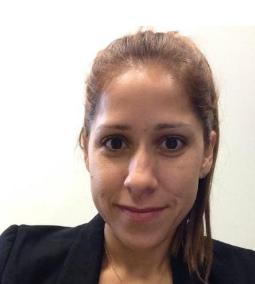
What have you done that you are proud of?
My experience at LMU prepared me well for the world of school counseling. Since graduating from the program, I am proud to have founded the counseling programs at two different charter schools. First, I was the Founding Counselor at Alliance Health Services Academy, a charter high school in south LA. We graduated 100% of our first class of students, with 100% accepted to 2- and 4-year colleges. My work with students was varied and helped ensure that all students were college and career ready. I assisted every student with credit checks, credit recovery, course scheduling, test preparation, SAT and ACT registration, the college application process, and financial aid. In addition to working with students, I directly assisted parents with the college-going process. I also provided social-emotional counseling to students in individual as well as group sessions.
How has your work made an impact on your community, school, agency, classroom, clients or students?
I currently serve as the Founding Counselor at Oxford Preparatory Academy (OPA) in Chino. I am the sole Counselor for 1,196 students in grades TK-8. My main focus is on social-emotional issues and the creation of the policies and procedures for the OPA Comprehensive Counseling Program. I provided guidance lessons to every single class on campus and regularly meet with 150 students during lunch bunch and individual sessions.
What evidence can you share that demonstrates this impact?
I created the Be Kind to Everyone campaign, focusing on the power of individuals to change the world around them by being kind to those in their community. With the help of 30 student Ambassadors, we encouraged students to commit random acts of kindness daily, presented to classrooms, and tracked the acts of kindness. Next year, I will add two additional OPA campuses to my schedule, serving as the Founding Counselor at three campuses and directly impacting the lives of over 2,000 students.
I am proud to be a LMU alumnus and contribute my success to the dedication of the professors and the staff of the program.
-
Kelvin Piazza School of Education, Master of Arts in Counseling 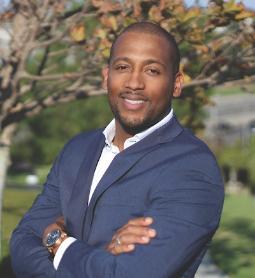
What have you done that you are proud of?
When I think of my educational purpose, which involves advocating for social justice in public K-12 schools, the proudest moments of my career are those pivotal moments when I have the opportunity in IEP meetings, student success team meetings or professional development meetings to communicate what is in the best interest of a specific student or for all students. "Students First" is a concept that is often invalid when stakeholders make decisions on behalf of students. On a daily basis, as a child welfare and attendance advocate, I assist students in finding their voice while learning how to communicate their needs; teaching self-advocacy in schools – this – makes me the most proud.
How has your work made an impact on your community, school, agency, classroom, clients or students?
Navigating through public K-12 education has proven to be a daunting task for some students and their families. As a specialized PSA (Pupil Servers and Attendance) Counselor, I assist students in grades 9-12th, at Fairfax High School, who are facing school and community barriers to completing graduation requirements through advocating for appropriate school accommodations and by providing free community resources to help fill their achievement gaps. In all, PSA Counseling allows me the opportunity to positively and comprehensively influence the school culture.
What evidence can you share that demonstrates this impact?
In February 2016, as a School-based PSA (Pupil Services and Attendance) Counselor at Edison Middle School in Los Angeles, under my supervision our attendance team was responsible for the school receiving a total amount of $7,167 for proficient or advanced attendance submittal for semester 1. We used these funds to purchase attendance incentive rewards for students such as; medallions for graduating 8th graders, school memorabilia for monthly attendance rewards, perfect attendance certificates and fieldtrips.
The personal development that I achieved through LMU's Counseling Program has provided me with the skills required to confidently advocate for social justice in schools.
-
Gregory Robert Baumann '03, MA, P.P.S., School of Education
Master of Arts in Counseling-255x255.jpg)
What are you proud of?
When someone under 18 years of age is arrested by law enforcement, he or she is taken to one of three Los Angeles County Juvenile Halls. If the judge determines that the minor cannot return home, he or she might be sentenced to six or nine months at a "probation camp". For the past decade, I have had the privilege of working with students who are receiving their educational services through the Juvenile Court System. I began by working as a Transition Counselor at three probation camps in the Santa Monica Mountains. Each camp had approximately 100 adjudicated minors serving time for a variety of crimes. During their stay at camp, the Los Angeles Office of Education (LACOE) provides for their educational needs. After numerous meetings the student, his parents or guardians, therapist, social worker, probation officer and district school officials, I would put together an individualized educational re-emersion plan for the student. Once released from camp, I would often meet the student at the school on the day of enrollment to ensure that everything went smoothly. For the next three months I would stay in contact with the student as both a check-in and to help them navigate any educational issue that might cause the student to break his condition of probation.
During the past four years, I have been working in much the same capacity at Central Juvenile Hall with the Developmentally Disabled student population. Most students do not stay long at one of the Juvenile Halls, however, students who are Regional Center clients are exempt from going to camp. They will stay at Central Juvenile Hall until their judge allows them to return home or until probation is able to find a suitable placement. Those are my students. I am most proud of them. In the time I have with them, which could be only a few months or as much as two years, the student and I implement an Individualized Learning Plan. It consists of Academic, Behavioral and Post-Secondary goals. We set up a plan to recover credits (if necessary), qualify for AB216 (if applicable), prepare for the HiSET exam, fill out college or trade school applications, complete FAFSA, apply for scholarships and, in general, prepare for life after high school.
What motivates you?
My students motivate me to work toward restorative justice. As hurting people, my students have hurt others and can easily be hurt. They are damaged goods; hardened on the outside, but as fragile as any student you would encounter at any other high school. While each day has its own peaks and valleys, I have never once woke up in the morning and not wanted to be with my students. They give me hope in the fact that we are always more than the sum of our past failures. The future is theirs. I feel privileged to play a small part in that process.
How has your work made an impact on your community?
My students leave Central Juvenile Hall with more of sense that being successful in the future is definitely possible. They take on just a little bit more ownership of their academic future as they transition back into their community. They are empowered with more academic knowledge and skill sets which, hopefully, they will use to better themselves, and their community.
-
Claudia Ramirez-Yaglian '99, MA Educational Counseling 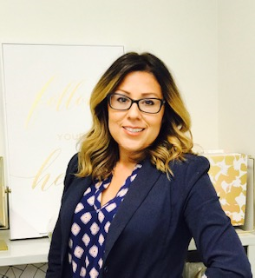
What are you proud of?
I have been a proud Counselor for the past 19 years servicing the community in counseling, advising and guiding students to reach their career, personal, and academic goals. I have brought career services and job/internships opportunities to students as well as career exploration to help students make informed decisions about careers and majors.
What motivates you?
I pursued both my undergraduate and graduate degree at LMU and graduated with honors for my Master's degree. The LMU Counseling program prepared me well to become a counselor at the community colleges. I especially remember my career counseling class where we had to develop a plan on how we would develop a career center at our school (or place of employment) if we were career counselors. This dream of mine, at the time I was a student, ended up becoming a reality for me. I am especially proud of the fact that when I was a student at LMU from 1994 to 1999 I was a single parent. Despite the barriers of being a single mom, low-income, minority student and first-generation college student, I was able to persevere as I was determined to have a better future and help others like myself reach their educational goals.
How has your work made an impact on your community?
In 2016, I joined the LA Mission College. It never had a Career Center nor dedicated Career Counselor for its students on campus. Since the time I came on board to be the Career Counselor, I conducted various workshops, events, programs, for the students including initiation and implementation of an online job board which provides access to local jobs, internships, and volunteer opportunities for the students. I implemented a yearly "Major Fair" and "Job Fair" for students, providing them with networking opportunities and career/major information, helping them to make informed decisions. I also initiated Internship opportunities for our students through LA Chamber, Bixel Exchange and Build LACCD. I started a "Career Closet" for students where by students who are in need of professional clothing for job interviews have access to free clothing. I initiated a "Be Job Ready" program, under which the students attend three workshops (Resume Writing, Interview Skills, and Networking and LinkedIn) and receive a certificate indicating they have learned the skills needed for employment. Lastly, I designed a Career Information System for students who are "undecided" about their major to take a career assessment and learn about careers and majors in their respective fields of interest. I was also one of the original Guided Pathways facilitators implementing the statewide Guided Pathways initiative on our campus and creator of the original "Meta Majors" Matrix for our campus, now called "Career and Academic Pathways."